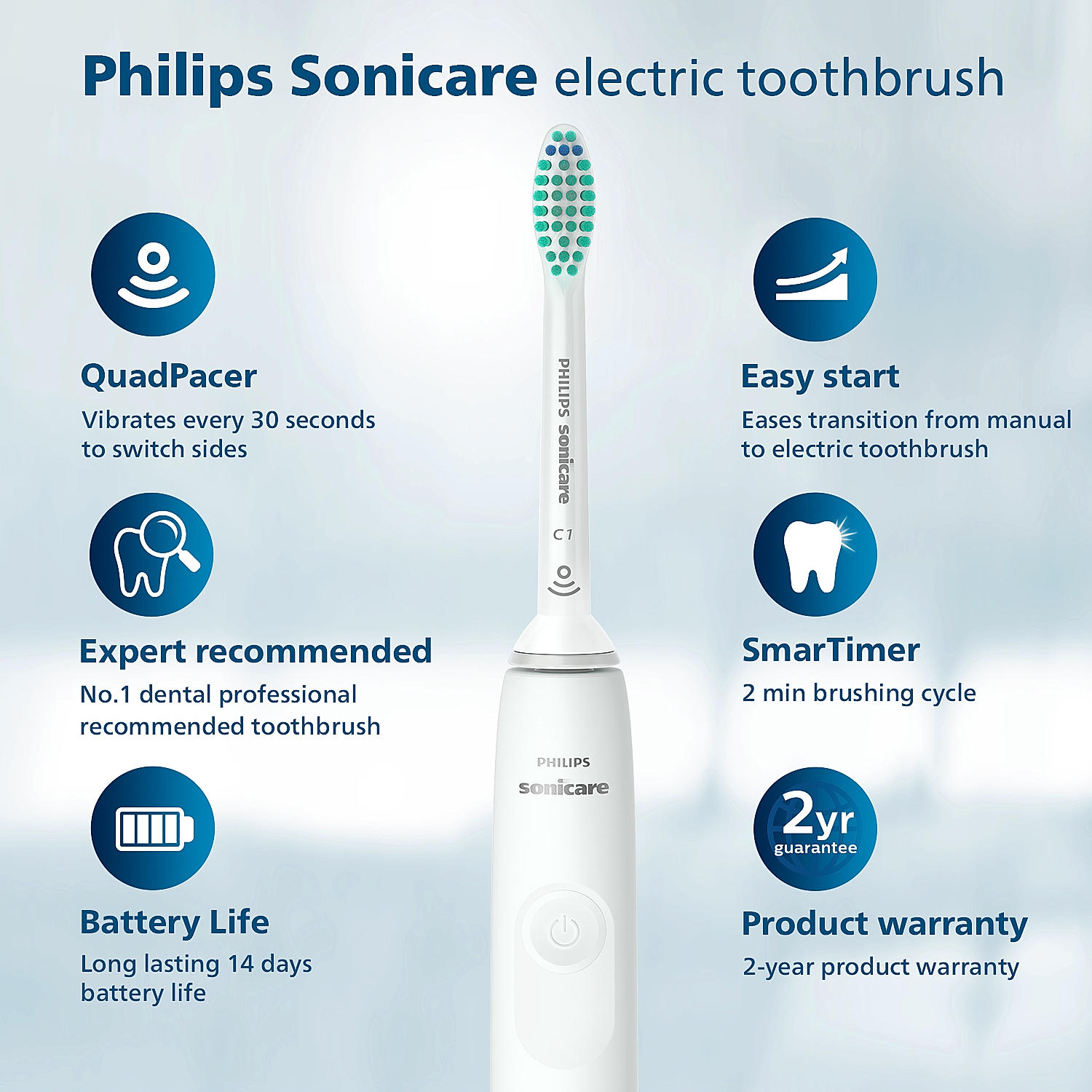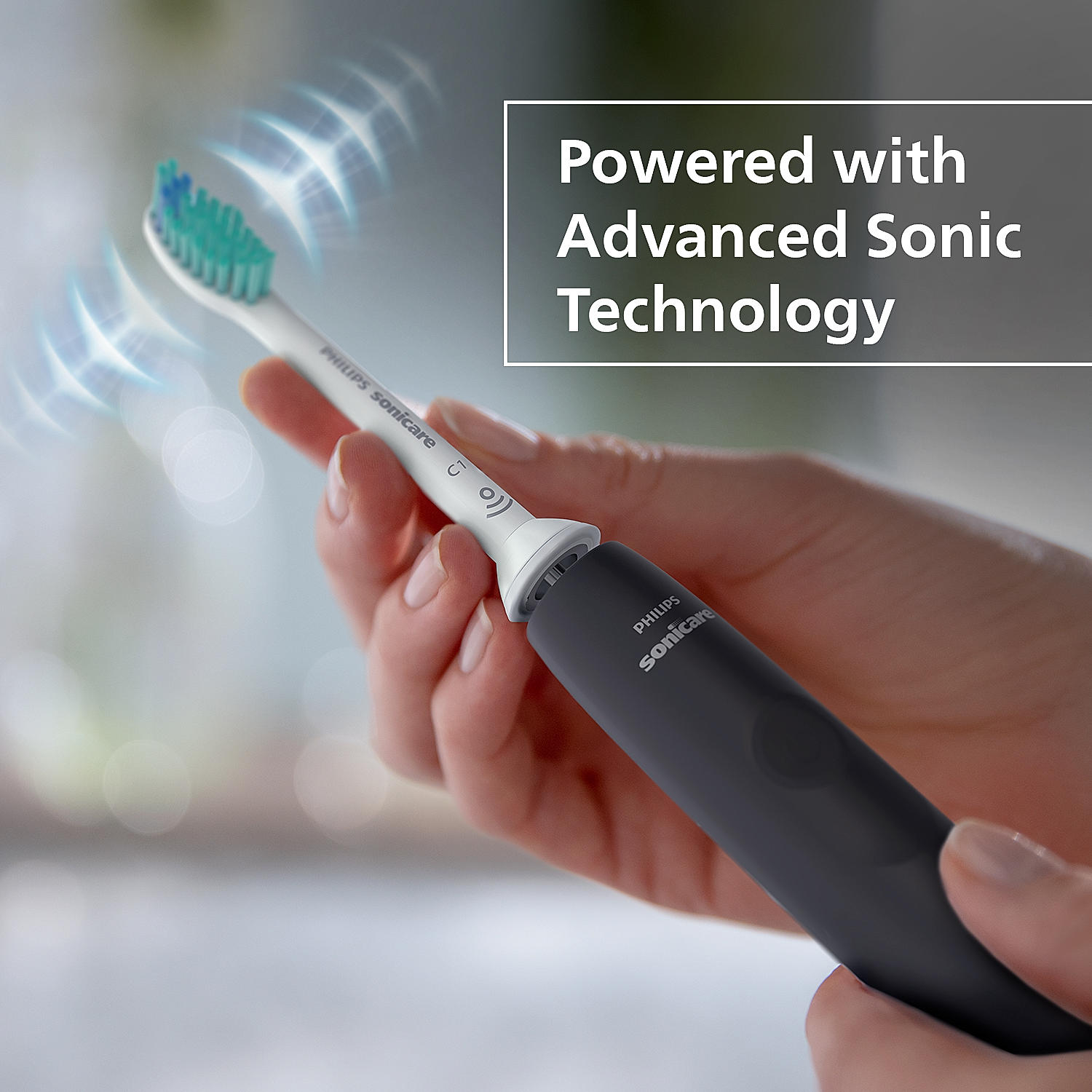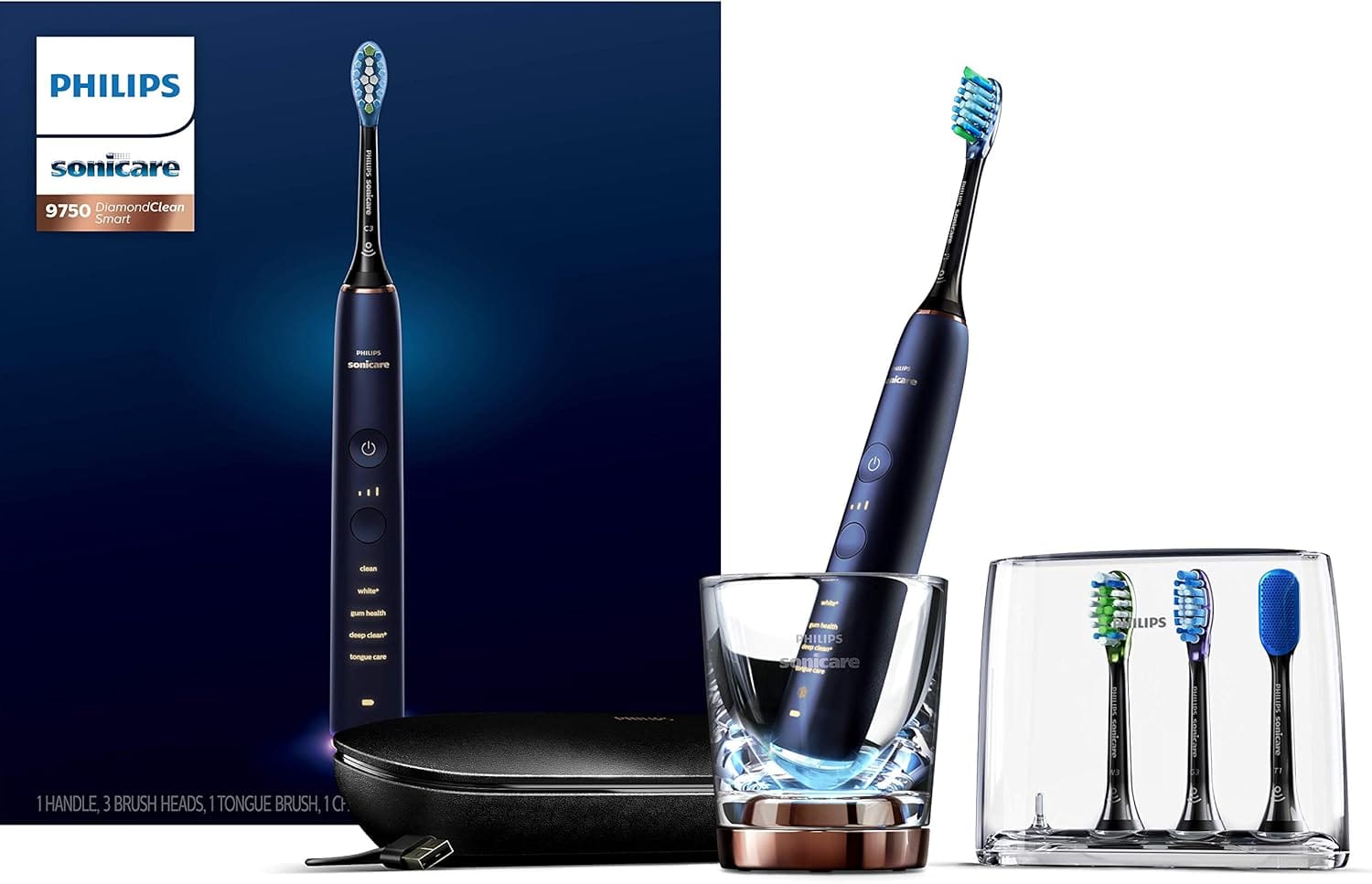Why the Philips Sonicare Electric Toothbrush Is the Ultimate Choice for Healthier Teeth
For most of my life, I was proud to say I’d never had a cavity. My dentist always gave me a thumbs-up, which made me feel like I was doing everything right. As a result, I never paid much attention to the type of toothbrush I used. A manual brush seemed perfectly fine—until it wasn’t.
Months of quarantine, indulging in coffee, black tea, and wine, and an overall lack of routine left my teeth looking dull and feeling grimy. Even though I brushed regularly, they felt sensitive, and I started worrying that I might get my first cavity. In the middle of a pandemic, avoiding extra dentist visits became a priority. So, I turned to the internet for help and stumbled upon the growing hype around electric toothbrushes.

My colleague, Karen Iorio Adelson, had already done a deep dive into electric toothbrushes, reporting that powered toothbrushes consistently outperformed manual ones in reducing plaque and gingivitis. The only problem? I had always hated electric toothbrushes.
Flashback to seventh grade, when I had braces. At the recommendation of my orthodontist, my mom bought me an electric toothbrush. It was bulky, loud, and way too aggressive for my sensitive mouth. To make matters worse, it was always running out of charge because the outlet in my bathroom was inconvenient, and replacement heads were expensive. Before long, I abandoned it and returned to my trusty manual brush.

But times have changed, and so have electric toothbrushes. Determined to keep my teeth healthy, I decided to give an electric toothbrush another try. After sifting through countless options and eliminating anything with unnecessary features (Bluetooth? No, thanks), I came across the Philips Sonicare. Dentists have long recommended Sonicare products, and their latest model seemed sleek and practical—everything I was looking for.
What Makes the Philips Sonicare Different?
The Philips Sonicare electric toothbrush arrived at the perfect time, almost like the tooth fairy herself delivered it. Available in soothing colors like mint, the brush was a far cry from the clunky, childhood device I remembered. It’s lightweight, easy to hold, and includes a handy carrying case, perfect for travel. But its real magic lies in its smart technology and design.

Unlike many electric toothbrushes on the market, the Philips Sonicare keeps things simple with just one setting. Yet, this one setting is all you need. The toothbrush uses microvibrations and contoured bristles to remove plaque and debris from hard-to-reach places, leaving your teeth feeling polished and squeaky clean. Gone are the days of aggressive, harsh brushing—this one gets the job done gently but effectively.
A standout feature is the built-in timer. The brush vibrates every 30 seconds, reminding you to move to the next section of your mouth, and shuts off automatically after two minutes—the dentist-recommended brushing time. This keeps you from overbrushing (a bad habit of mine) and ensures your entire mouth gets equal attention. No more guessing if you’ve brushed long enough; the Sonicare does the thinking for you.
Cleaner, Brighter Teeth in Just a Few Months
After three months of daily use, I can say with confidence that the Philips Sonicare has transformed my dental routine. My teeth are visibly whiter and no longer feel sensitive, even after indulging in my favorite drinks like coffee and wine. The smooth, polished feel after each use is something a manual toothbrush simply can’t replicate. I’ve even convinced my mom and boyfriend—both cavity-free, like me—to try it, and they’re just as impressed.

“At this point, I’ll probably never go back,” my boyfriend said when asked if he’d return to manual brushing. And I agree. The ease of use, the cleaner feel, and the noticeable results make this brush a winner in my book.
Convenient and Affordable
One of the biggest hesitations I had about switching to an electric toothbrush was the cost. But Philips Sonicare replacement heads are reasonably priced—just $10 for a pack of two. And because the heads are available on subscription, I don’t even have to worry about remembering to replace them. It’s more affordable than constantly buying new manual brushes from the drugstore, and way more convenient.
| Feature | Philips Sonicare Electric Toothbrush | Manual Toothbrush |
|---|---|---|
| Plaque Removal | Removes more plaque with microvibrations | Less effective at removing plaque |
| Brushing Timer | Built-in 2-minute timer with 30-second intervals | No timer |
| Battery Life | Up to 2 weeks on a full charge | No battery needed |
| Modes | One cleaning mode (simplified) | No modes |
| Replacement Cost | $10 for a two-pack of brush heads | $2–$5 for a new manual toothbrush |
| Ease of Use | Lightweight and comes with travel case | Simple and always ready to use |
| Gum Sensitivity | Gentle on gums with contoured bristles | May cause more irritation if brushed too hard |
| Convenience | Subscription option for replacement heads | No subscription, but easily replaceable |
| Dentist Recommendation | Highly recommended by dentists for optimal cleaning | Not as highly recommended |
| Portability | Travel-friendly with a carrying case | Easily portable without extra accessories |
Final Thoughts: A Must-Have for 2024
With its dentist-recommended features, sleek design, and practical functions, the Philips Sonicare electric toothbrush is a must-have for anyone serious about dental health. Whether you’ve never had a cavity or are prone to dental issues, this brush offers the perfect balance of power and gentleness, making it ideal for everyone. Its ability to reduce plaque and gingivitis while providing a noticeably cleaner, whiter smile is something I’m proud to say I’ve embraced.

Of all the new habits I picked up in quarantine—coffee, tea, wine—switching to the Philips Sonicare is the one I’m most proud of. If you’re looking to upgrade your dental routine and keep your smile looking its best, this toothbrush is definitely worth the investment.
#PhilipsSonicare #ElectricToothbrushReview #BestElectricToothbrush #DentalCare #OralHygiene #TeethWhitening #HealthyTeeth #PlaqueRemoval #DentistRecommended #QuarantineHabits #SmileCare #ToothbrushComparison#TechForTeeth #CavityPrevention #This4YouReview
FAQs about the Philips Sonicare Electric Toothbrush
Q1: What makes the Philips Sonicare different from a manual toothbrush?
A: The Philips Sonicare electric toothbrush uses advanced sonic technology with microvibrations and contoured bristles to remove more plaque than a manual toothbrush. It also has a built-in timer to ensure you’re brushing for the dentist-recommended two minutes.
Q2: Is the Philips Sonicare toothbrush suitable for sensitive teeth?
A: Yes, the Philips Sonicare is designed to be gentle on your gums and teeth. Despite its powerful cleaning action, the brush is non-abrasive and suitable for those with sensitive teeth.
Q3: How often do I need to replace the brush heads?
A: It’s recommended to replace the brush heads every three months for optimal cleaning performance, or sooner if the bristles become frayed. The replacement heads are available on subscription for added convenience.
Q4: Does the Philips Sonicare come with multiple brushing modes?
A: No, this model keeps things simple with a single brushing mode. However, this one mode effectively removes plaque and keeps your teeth feeling clean and polished.
Q5: How long does the battery last on a full charge?
A: The Philips Sonicare toothbrush offers a long battery life, typically lasting up to 2 weeks on a full charge, depending on usage. This makes it ideal for travel.
Q6: Is it worth the investment if I’ve never had a cavity?
A: Even if you’ve never had a cavity, using an electric toothbrush like the Philips Sonicare can help you maintain optimal oral hygiene by preventing plaque buildup, reducing gingivitis, and keeping your teeth cleaner and brighter.
Q7: Are the replacement heads expensive?
A: Replacement heads for the Philips Sonicare are reasonably priced at around $10 for a two-pack, and they last for three months. Subscription options make it easier to ensure you always have a fresh brush head ready.
Q8: Can I travel with the Philips Sonicare toothbrush?
A: Yes, the Philips Sonicare is lightweight and comes with a handy travel case, making it perfect for travel without compromising on oral care.
